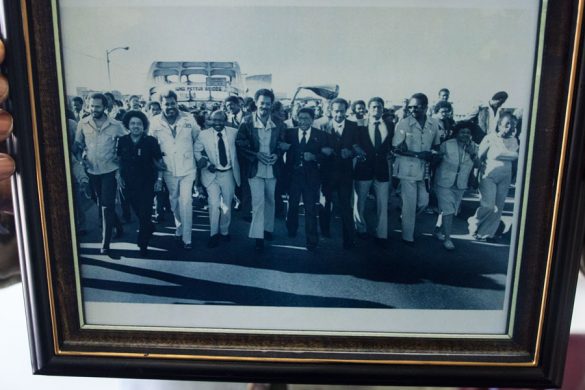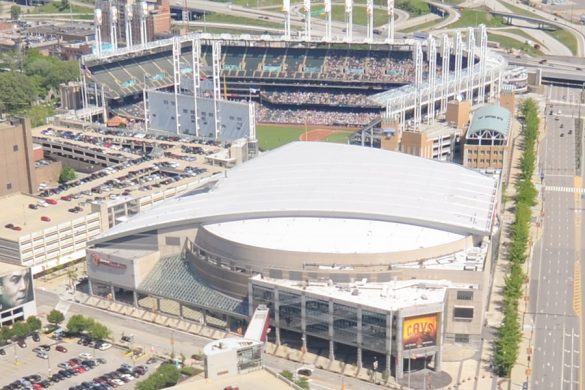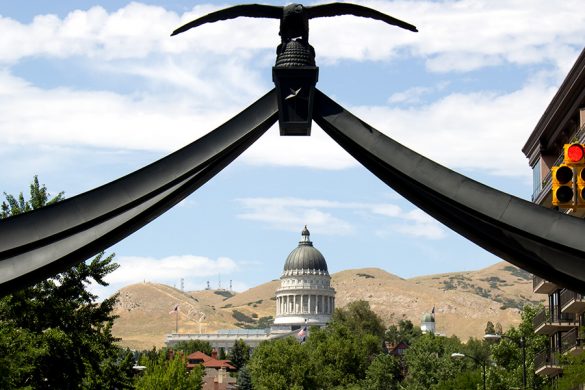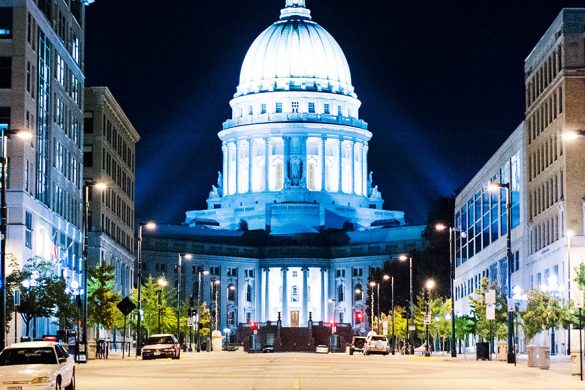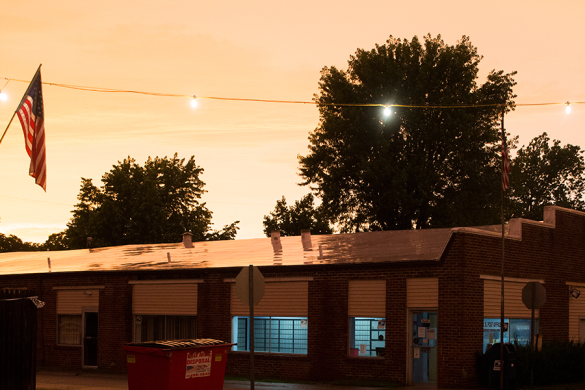
David Faucheux, 51, of Lafayette, said he feels “invisible” to Louisiana politicians. (Photo courtesy of David Faucheux)
PHOENIX – David Faucheux was born with vision problems that worsened as he got older. He is now completely blind.
As a visually impaired voter in Louisiana, he is supposed to receive extra time and assistance at the polls. He said he generally does not receive this help, but a June law allowing voters with disabilities to vote absentee via email aims to make it easier to vote.
“I don’t feel that my vote really will change anything for blind people,” he said. “(People with disabilities are) such a small part of the entire population that I think some people just aren’t aware. You always have to be prepared to educate (poll workers) every time you go.”
Faucheux said he usually only votes in national elections, estimating he’s voted seven times.
“I feel invisible to Louisiana politicians, so I don’t try that hard anymore to vote local,” said Faucheux, a 51-year-old from Lafayette, Louisiana, with a master’s degree in library and information science.
When he has voted, he has taken friends with him to help.
In Louisiana, voters with visual impairments are allowed to bring someone to the polls to assist them, according to Louisiana Secretary of State Tom Schedler. This person can be anyone but a candidate, the voter’s employer, the voter’s union agent, a commissioner-in-charge or a staff member for a state residential facility where the voter lives.
When Faucheux brings a friend to the polls, the commissioner writes down their names in a register, and the friend signs his or her name.
Faucheux follows politics, so he’ll usually tells the person helping him what to mark rather than having the ballot read to him.
The pair is supposed to go to the front of the line to give the visually impaired voter extra time to cast a ballot.
But Faucheux said he’s never done that, and he actually felt rushed while voting.
“I had to hurry up one time because they said I was taking too long with my helper,” he said. “Good luck trying to educate people down here.”
According to a Rice University study, it took visually impaired voters six times longer than sighted voters to complete an identical ballot, and 22.6 percent of visually impaired voters feel time pressure caused them to rush and make mistakes.
The same study, which surveyed more than 200 legally blind voters, said 92.2 percent of visually impaired voters receive assistance voting, including from family members, poll workers and friends.
“They don’t like you to stay long,” he said. “Legally, I’m supposed to have more time, but I don’t think everybody who runs the polls down here knows that.”
And because most of Faucheux’s friends in his apartment complex died or moved away, he said he doesn’t vote now because he doesn’t have anyone to take him.
A series of laws and regulations have tried to make voting more accessible.
Under the Help America Vote Act of 2002, all polling places are supposed to be accessible, private and independent to all voters.
Since fall 2006, all Louisiana voters are supposed to have access to an audio voting keypad, according to the Louisiana secretary of state. But Faucheux said his polling location in Lafayette doesn’t have an audio ballot option.
Louisiana Gov. John Bel Edwards signed House Bill 614 into law in June, allowing voters with disabilities to vote using email absentee ballots. Elections officials send voters with disabilities, including those with visual impairments, a ballot via a secure email. They fill it out using specialized software on their computer, print it out and return it via mail, fax or in person.
Rep. Helena Moreno, D-New Orleans, introduced the bill. The law should be in place for the Nov. 8 general election.
Faucheux said he hadn’t heard of the new legislation, but “it would make it easier and more private to vote.”
He said because he will not be able to get a ride to the polls, Faucheux will most likely vote absentee this November.
This story was informed by a source in the Public Insight Network. Share your voting experience here.

